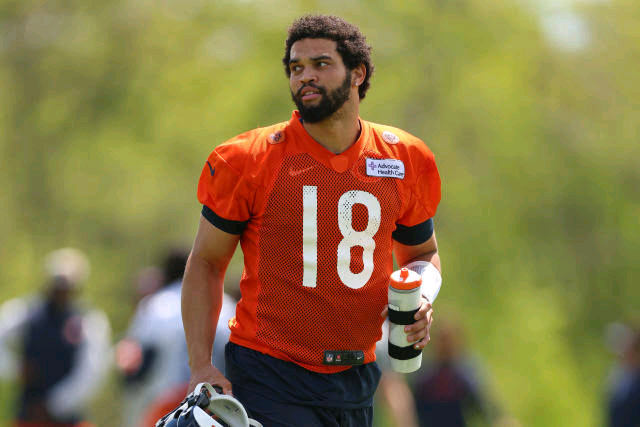Bears Beat USC Trojans by $10 Million.
The Bears pulled off a stunning comeback, defeating the Trojans by a margin of $10 million. This financial victory came after an unexpected turn of events involving sensation Caleb Williams, who, in an unexpected move, paid the club a substantial amount. However, the club responded by refusing to allow him to play, a decision that shocked fans and analysts alike and raised questions about the circumstances surrounding the payment and the club’s refusal. Williams’ actions are expected to reverberate throughout the season, adding a dramatic chapter to college football’s ongoing tale.
The Bears’ decision to bench Caleb Williams, one of the best college football players in the country, has generated a great deal of controversy and conjecture. Fans and analysts are wondering if the team made this unexpected decision for strategic or tactical reasons, or if it had anything to do with hidden agreements or internal team dynamics. Either way, this incident has elevated the Bears to a new level of prominence and left the Trojans reeling from an unexpected loss.
As the story develops, it will be interesting to see how recruiting, team morale, and future game strategies are impacted. However, one thing is certain: this incident has set a precedent that could have a lasting impact on college football policies. Caleb Williams’ situation highlights potential ethical and contractual complexities within collegiate sports. Many are now calling for greater transparency and stricter regulations to prevent similar occurrences in the future. Meanwhile, the Bears are under pressure from fans and officials, who are demanding explanations and accountability.
To sum up, the Bears’ $10 million victory over the USC Trojans and the controversy surrounding Caleb Williams have sparked a flurry of interest and conjecture in the college football world. Williams’ sudden decision to not play has affected the game’s immediate outcome and brought up significant issues regarding the leadership and moral standards in collegiate athletics. While fans, players, and officials eagerly await more information, the incident serves as a sobering reminder of the difficulties and complexities involved in running a program of this caliber. Its long-term effects will probably change the dynamics of college football and necessitate necessary reforms in the future.
